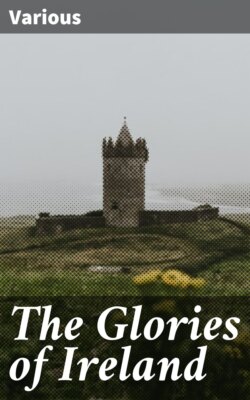Читать книгу The Glories of Ireland - Various - Страница 60
На сайте Литреса книга снята с продажи.
CHEMISTS.
ОглавлениеRichard Kirwan (b. Galway 1733, d. 1812), F.R.S. A man of independent means, he devoted himself to the study of chemistry and mineralogy and was awarded the Copley medal of the Royal Society. He published works on mineralogy and on the analysis of mineral waters, and was the first in Ireland to publish analyses of soils for agricultural purposes, a research which laid the foundation of scientific agriculture in Great Britain and Ireland.
Maxwell Simpson (b. Armagh 1815, d. 1902), F.R.S., held the chair of chemistry in Queen's College, Cork, for twenty years and published a number of papers in connection with his subject and especially with the behavior of cyanides, with the study of which compounds his name is most associated.
Cornelius O'Sullivan (b. Brandon, 1841, d. 1897), F.R.S., was for many years chemist to the great firm of Bass & Co., brewers at Burton-on-Trent, and in that capacity became one of the leading exponents of the chemistry of fermentation in the world.
James Emerson Reynolds (b. Dublin 1844), F.R.S., professor of chemistry, Trinity College, Dublin, for many years, discovered the primary thiocarbamide and a number of other chemical substances, including a new class of colloids and several groups of organic and other compounds of the element silicon.
Among others only the names of the following can be mentioned:—Sir Robert Kane (b. Dublin 1809, d. 1890), professor of chemistry in Dublin and founder and first director of the Museum of Industry, now the National Museum. He was president of Queen's College, Cork, as was William K. Sullivan (b. Cork 1822, d. 1890), formerly professor of chemistry in the Catholic University. Sir William O'Shaughnessy Brooke, F.R.S. (b. Limerick 1809, d. 1889), professor of chemistry and assay master in Calcutta, is better known as the introducer of the telegraphic system into India and its first superintendent.
